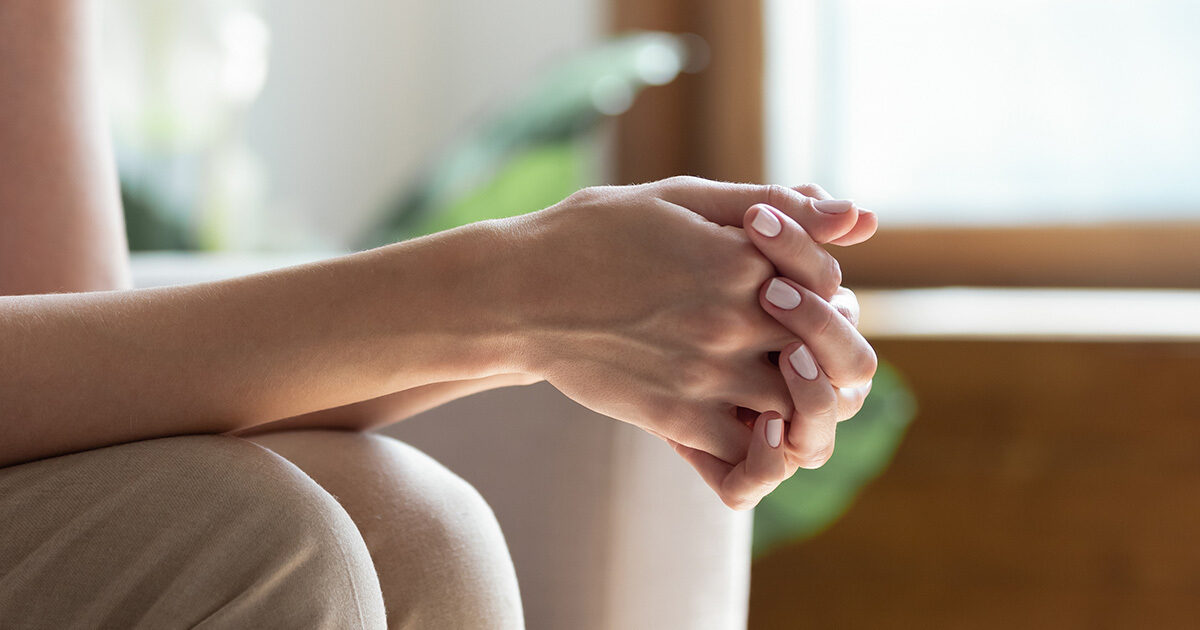Is Cracking Your Joints Really Bad for You?
What to know about the common habit and when to break it
Reviewed by: Branden Daubel, PT, DPT, CSCS, and Greg Muller, PhD
Written by: Lauren Schneider

Whether you’re guilty of cracking your knuckles or cannot stand when others indulge in the habit, you’ve likely heard claims about how cracking your knuckles may affect your joints over time. Branden Daubel, PT, DPT, CSCS, a licensed physical therapist in UT Health Austin’s Musculoskeletal Institute, claims, “Concerns about cracking your knuckles being related to arthritis or other damage to the joints are largely overblown. If you’re cracking your joints yourself, it’s safe. You’re never putting bones, tendons, or any other structure in or out of place.”
The sound your knuckles make when you crack them is thought to result from the formation of bubbles in the synovial fluid, the thick fluid that cushions or lubricates your joints to reduce friction between your bones and preserve your cartilage. The knuckle-cracking sound comes from the sudden release or popping of these gas bubbles due to a change in pressure as your joints are stretched out.
“The force produced by these bubbles may activate sensory receptors in the joint, which some experts believe causes the satisfaction people derive from cracking their knuckles,” shares Daubel. “These receptors send information about where your joint is in space to your brain, and your brain gives you a little hit of dopamine because it loves information.”
“Nothing Is Really Changed”
While not a lot is known about why people crack their joints, researchers have not demonstrated an association between the habit and long-term joint damage.
In 1998, researcher Donald L. Unger, MD, published the results of an experiment in which he cracked the knuckles of his left hand only for over 50 years. He regularly imaged the joints in his hands during this period and found no difference between his left hand and the uncracked knuckles of his right hand. This experiment only involved one participant, so it does not conclusively prove the safety of knuckle cracking; however, there is no evidence to suggest that Dr. Unger was harmed by the practice, either.
The relative safety of joint cracking is not limited to the knuckles. Recent findings indicate that knee crepitus (creaking and cracking) is not linked to the need for knee replacement down the line. While high-velocity low amplitude manipulation, a specific form of neck movement performed by physical therapists and chiropractors, carries a very small risk of artery tear, a person can safely crack their own neck without complication.
“While joint cracking is thought to be safe, there are no known benefits associated with the habit,” explains Daubel. “It may feel good, but nothing is really changed in your body after you’ve done it.”
Additionally, constantly feeling the need to crack one’s joints may be a sign of a larger underlying problem. “If people experience chronic stiffness or tension and they crack their joints all the time to solve it, they may want to speak with their doctor,” says Daubel. “This could indicate that their body is not coping well with the stress or demands placed on it, which can be addressed through interventions such as physical therapy.”
When and How to Stop
Although joint cracking is harmless under most circumstances, some people may still wish to break the habit. “If a person’s knuckle cracking is causing them significant pain or numbness, or if people in their life are expressing annoyance, this could indicate that they should quit,” says Greg Muller, PhD, a licensed psychologist in Adult Psychiatry within UT Health Austin’s Mulva Clinic for the Neurosciences.
Tips to Help You Stop Cracking Your Joints
<br>Understand Why You Crack Your Joints
Just as the habit can indicate underlying musculoskeletal tension, joint cracking can be linked to psychological factors. “People often use knuckle cracking as a self-soothing mechanism to manage their anxiety,” explains Dr. Muller.
Managing the emotional cues you associate with a habit can make the behavior less tempting. Mindfulness strategies, such as meditation or deep breathing exercises, can also help you keep your cool. Everyone experiences anxiety and stress from time to time, but if these feelings are overwhelming and/or seriously interfere with your quality of life beyond some annoying habits, you may wish to speak to a mental health professional.
Divert Yourself
Explore different strategies to help distract yourself from cracking your knuckles. Self-regulation products such as fidget rings and stress balls may also prove beneficial. “People seeking to break a habit should experiment to determine which strategies work best for them,” says Dr. Muller. “Different tools are more effective at helping different people build awareness of when they’re engaging in the unwanted behavior.”
“The most important things to remember about breaking a habit,” continues Dr. Muller, “are to be patient enough to learn what works for you, return to those strategies when you need them, and recognize when you need help from a provider.” If you want to break a habit but cannot despite your best efforts, consider seeking out the help of a licensed therapist trained in habit reversal therapy.
For more information about the Musculoskeletal Institute or to schedule an appointment, call 1-833-UT-CARES (1-833-882-2737) or visit here.
For more information about the Mulva Clinic for the Neurosciences or to schedule an appointment, call 1-833-UT-CARES (1-833-882-2737) or visit here.